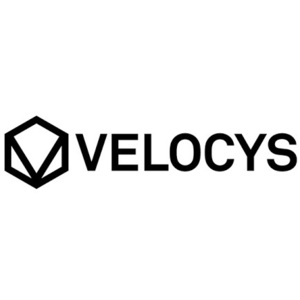Velocys: SAF collaboration with Toyo advances to commercial stage

August 31, 2021
BY Erin Krueger
Velocys announced on Aug. 31 that its collaboration partner, Toyo Engineering Corp., is starting the advanced engineering and design phase of a commercial scale biorefinery in Japan to produce sustainable aviation fuel (SAF).
According to Velocys, Toyo will integrate biomass gasification, Velocys’ Fischer Tropsch (FT) technology, and other process technologies to convert woody biomass into SAF during this phase of the proposed project.
“This step towards a commercial-scale biorefinery in Japan shows the increasing momentum of the Sustainable Aviation Fuel market,” said Henrik Wareborn, CEO of Velocys. “This announcement of a woody biomass project and last week’s announcement of the e-fuels project also with Toyo, build upon our successful demonstration last year.
In that announcement, released Aug. 25, Velocys said its FT technology has been selected for an e-fuels project by Toyo and a consortium of Japanese companies, including Toshiba Energy Systems & Solutions Corp., Toshiba Corp., Idemitsu Kosan Co. Ltd., Japan CCS Co. Ltd., and All Nippon Airways Co. Ltd. According to Velocys, these six companies are being commissioned by Japan’s Ministry of the Environment to commence a demonstration project that aims to commercialize a SAF supply chain based on carbon recycling and regional revitalization through CO2 recycling.
Advertisement
Advertisement
Velocys and Toyo signed a collaboration agreement in February 2021 to start development of commercial projects to produce SAF and other renewable fuels in Japan. The agreement followed work conducted in 2020 between the two companies at the biomass-to-jet-demonstration facility in Japan. In June, Velocys announced that SAF produced using the company’s proprietary technology was used in a commercial flight by Japan Airlines. The fuel used in that flight was produced in a Velocys FT reactor from the hydrogen and carbon gases generated by the gasification of wood chips at the demonstration plant in Japan.
Advertisement
Advertisement
Related Stories
Marathon Petroleum Corp. on Aug. 5 released second quarter financial results, reporting improved EBITDA for its renewable diesel segment. The company primarily attributed the improvement to increased utilization and higher margins.
Chevron Corp. on Aug. 1 confirmed the company started production at the Geismar renewable diesel plant in Louisiana during the second quarter after completing work to expand plant capacity from 7,000 to 22,000 barrels per day.
The public comment period on the U.S. EPA’s proposed rule to set 2027 and 2027 RFS RVOs and revise RFS regulations closed Aug. 8. Biofuel groups have largely expressed support for the proposal but also outlined several ways to improve the rulemaking.
In celebration of World Biodiesel Day, MOL Group on Aug. 8 announced SAF was successfully produced for the first time at INA’s Rijeka Refinery during a pilot project to process biocomponent. Renewable diesel was also produced.
Iowa farmers have a new market opportunity for their 2025 soybean crop. Landus is expanding its Clean Fuel Regulation initiative, made possible by recent policy changes expected to increase Canada's demand for liquid biofuel.
Upcoming Events










